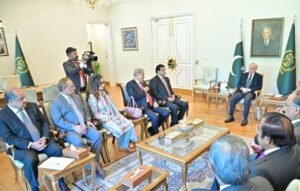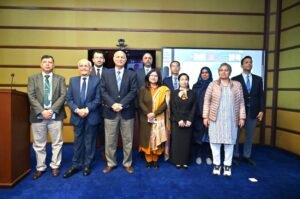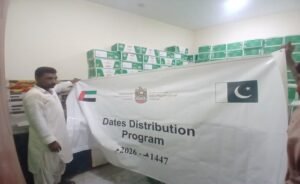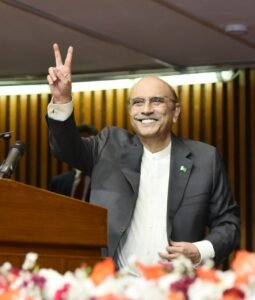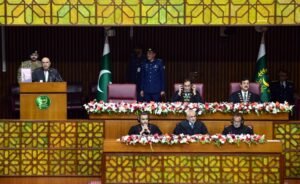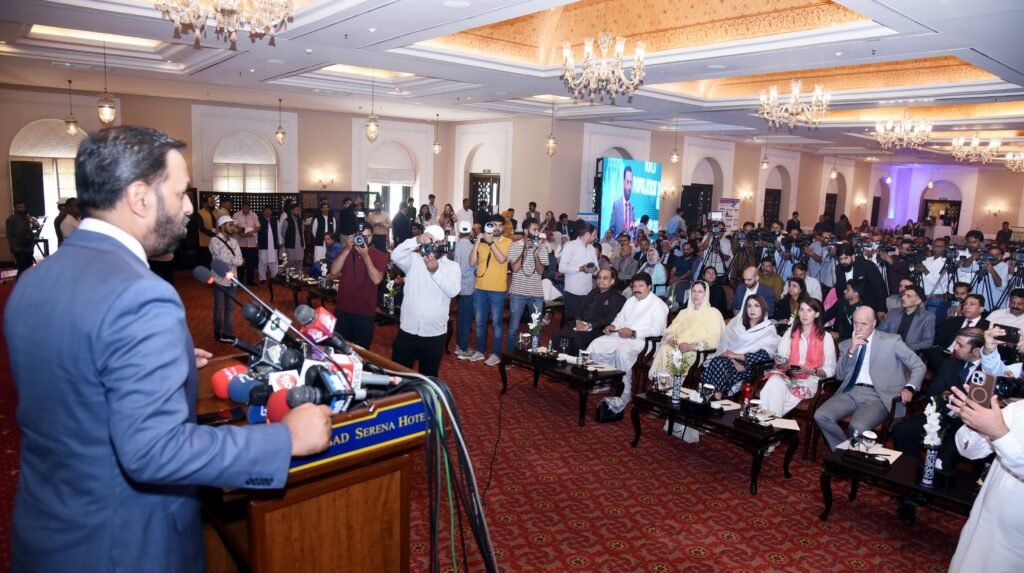
National Leadership Reaffirms Commitment to Address Population Growth and Its Impact on Sustainable Development
Islamabad : The Ministry of National Health Services, Regulations and Coordination (MoNHSR&C) commemorated World Population Day 2025 through a high-level national, bringing together key stakeholders including federal ministers, parliamentarians, religious scholars, development partners, and provincial representatives. The event served as a unified platform to deliberate on Pakistan’s population challenges and underscore the critical importance of integrated and inclusive responses.
, Federal Minister for National Health Services, Syed Mustafa Kamal, emphasized that the population issue is a national cause, which is why all political parties were invited to today’s event. He noted with deep concern that population growth in Pakistan has reached an alarming level, among the highest in the world.
The minister highlighted the wide-ranging consequences of this demographic challenge, stating that over 25 million children are currently out of school due to the pressure of population. He described the condition of government hospitals as resembling public rallies due to overcrowding. Criticizing the existing healthcare priorities, he said that the health system in Pakistan is more focused on treatment rather than prevention. He added that from Gilgit-Baltistan to Karachi, the sewerage systems are in a dilapidated state, and contaminated water continues to make children ill, resulting in the expenditure of billions of rupees on treatment. Syed Mustafa Kamal stressed that 68% of diseases in Pakistan are caused by unsafe water, and the mixing of sewage into drinking water remains a grave national problem. He also pointed out that Pakistan lacks an effective sewage treatment system.
The minister lamented that while the world values prevention over cure, there is a lack of such thinking in Pakistan. He shared that 40% of children in the country suffer from stunted growth. Linking the issue of population with fiscal policy, he observed that 82% of the NFC Award is distributed based on population. He recommended that only 50% of the award be allocated on the basis of population, while the remaining 32% should be used as an incentive for provinces that successfully reduce their population growth.
Announcing a significant step, he shared that the Prime Minister has established a National Task Force to address the population crisis. He concluded his speech by emphasizing that every segment of society must play its role in controlling population growth. The event was attended by federal ministers and senior political leaders, as well as religious scholars from various schools of thought, including Mufti Zubair. The spokesperson of the Ministry of Health stated that the leadership present appreciated the actions taken by Syed Mustafa Kamal and the Ministry in tackling this pressing national issue.
Mufti Zubair Sahib, offering a religious perspective, reiterated that responsible family planning is aligned with Islamic teachings. He cited scholarly consensus (fatwas) supporting population management to protect the health and well-being of families, especially mothers and children. He emphasized that faith-based messaging remains vital for shaping societal behavior and public acceptance of reproductive health initiatives.
Addressing the macroeconomic implications, Federal Minister for Finance, Mr. Muhammad Aurangzeb, highlighted how unchecked population growth strains national resources, social infrastructure, and economic stability. He stressed the need for prioritizing human development in fiscal planning and affirmed the government’s commitment to incorporating population-related allocations in future budgetary frameworks.
In a key policy intervention, Federal Minister for Planning, Development and Special Initiatives, Mr. Ahsan Iqbal Chaudhry, proposed a reform of the National Finance Commission (NFC) Award to reflect demographic realities at the provincial and district levels. He emphasized the importance of investing in female education, creating economic opportunities for young women, and addressing the drivers of high fertility rates. He also announced the establishment of a high-level Steering Committee by the Prime Minister to revisit the population parameters within the NFC formula. The Committee is expected to convene in the coming weeks.
Speaker of the National Assembly, Raja Pervaiz Ashraf, commended the Ministry for bringing the issue to the forefront of national discourse. He called for multi-party consensus and legislative action to ensure population remains central to Pakistan’s development agenda.
Senior political figure Mr. Khursheed Shah emphasized the correlation between population growth, GDP, and education investments. He urged for parliamentary debate on the issue and cited Bangladesh’s success in managing population growth as a model worth adapting in Pakistan’s context.
Mr. Luay Shabaneh, Country Representative, UNFPA Pakistan, reaffirmed the international community’s support for Pakistan’s population programs. He advocated for expanding access to reproductive health services, empowering individuals to make informed choices, and strengthening integrated efforts to advance health, rights, and agency—especially for women and adolescents.
Representing the Government of Khyber Pakhtunkhwa, Mr. Liaqat Ali Khan, Special Assistant to the Chief Minister on Population Welfare, expressed appreciation for the Ministry’s continued collaboration with provinces. He stressed the need for long-term demographic planning, referencing projections for 2050, and proposed the establishment of a dedicated Population Fund by the Federal Ministry of Finance. He also advocated for greater provincial and district autonomy in line with the 18th Constitutional Amendment.
Dr. Tariq Fazal Chaudhary, Minister for Parliamentary Affairs, reflected on the demographic dividend and associated challenges. He noted the potential of Pakistan’s youth, while highlighting the need to address gaps in infrastructure, employment, and civic amenities. He called for promoting social capital, expanding recreational and awareness initiatives, and fostering a more informed and resilient society.
The event concluded with remarks from the Federal Secretary for Health, who expressed gratitude to all participants and reaffirmed the Ministry’s resolve to pursue evidence-based strategies in collaboration with provincial governments, development partners, and civil society. He reiterated that population management is a national development imperative requiring sustained political commitment, adequate resource allocation, and strong public engagement.


